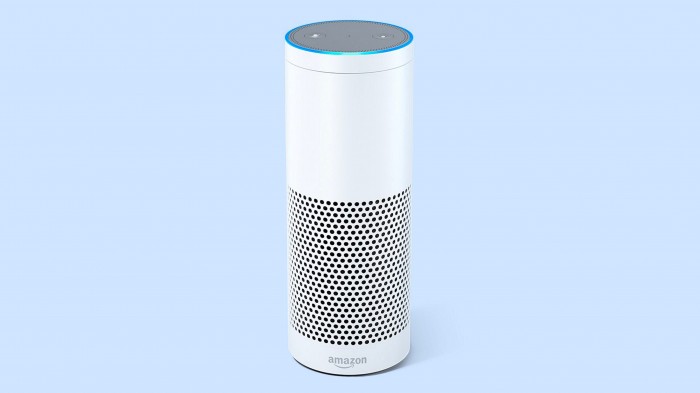Scientists Are Turning Alexa into an Automated Lab Helper

Alexa, what’s the next step in my titration?
Probably not the first question you ask your smart assistant in the morning, but potentially the kind of query that scientists may soon be leveling at Amazon’s AI helper. Chemical & Engineering News reports that software developer James Rhodes—whose wife, DeLacy Rhodes, is a microbiologist—has created a skill for Alexa called Helix that lends a helping hand around the laboratory.
It makes sense. While most people might ask Alexa to check the news headlines, play music, or set a timer because our hands are a mess from cooking, scientists could look up melting points, pose simple calculations, or ask for an experimental procedure to be read aloud while their hands are gloved and in use.
The software has been tested in DeLacy Rhodes's lab, and the pair has presented it at an American Chemical Society meeting. It reportedly received positive murmurings from the assembled crowd.
Of course, Alexa’s appearance in the lab wouldn’t be the first time that consumer technology has been warmly adopted by scientists. Whether it’s hacking the 3-D camera technology of Microsoft's Kinect, repurposing sensors embedded within cell phones, or hijacking VR as a means of data visualization, there’s a fine tradition of researchers borrowing off-the-shelf hardware for more niche applications. Commercialized tech can often provide a more affordable way to get things done, and gadgets increasingly come with capabilities that were previously limited to custom-made hardware.
For now, Helix is still a proof-of-concept. But you can sign up to try an early working version, and Rhodes has plans to extend its abilities—perhaps even adding the ability to order lab supplies, much like you can order goods from Amazon. It’s just a shame that Alexa can't write up the results of experiments ... for now, anyway.
(Read more: Chemical & Engineering News, “Physicists Build Laser Tweezers Controlled with Kinect,” “A Cell-Phone Microscope for Disease Detection”)
Deep Dive
Artificial intelligence
Large language models can do jaw-dropping things. But nobody knows exactly why.
And that's a problem. Figuring it out is one of the biggest scientific puzzles of our time and a crucial step towards controlling more powerful future models.
Google DeepMind’s new generative model makes Super Mario–like games from scratch
Genie learns how to control games by watching hours and hours of video. It could help train next-gen robots too.
What’s next for generative video
OpenAI's Sora has raised the bar for AI moviemaking. Here are four things to bear in mind as we wrap our heads around what's coming.
Stay connected
Get the latest updates from
MIT Technology Review
Discover special offers, top stories, upcoming events, and more.